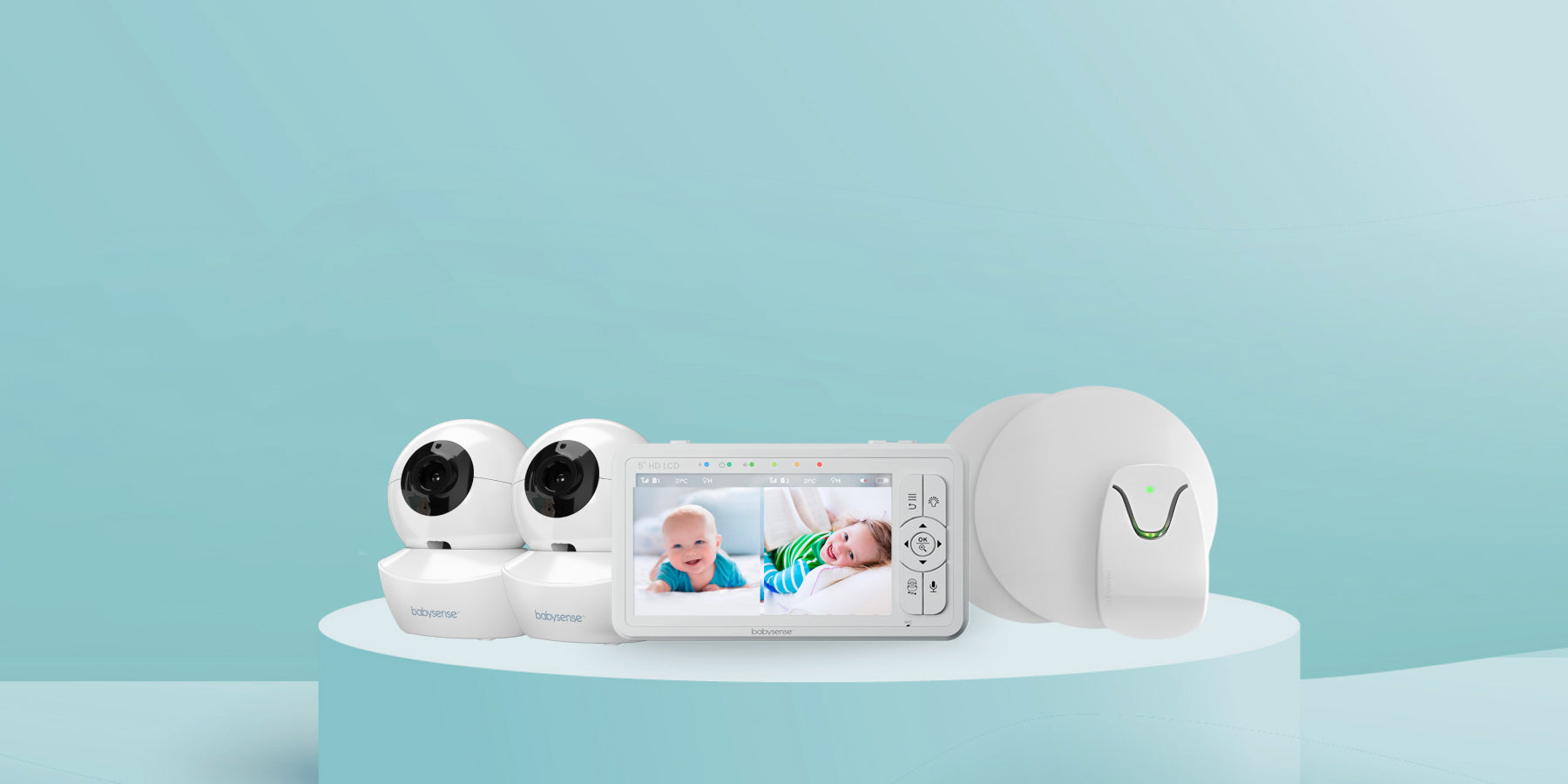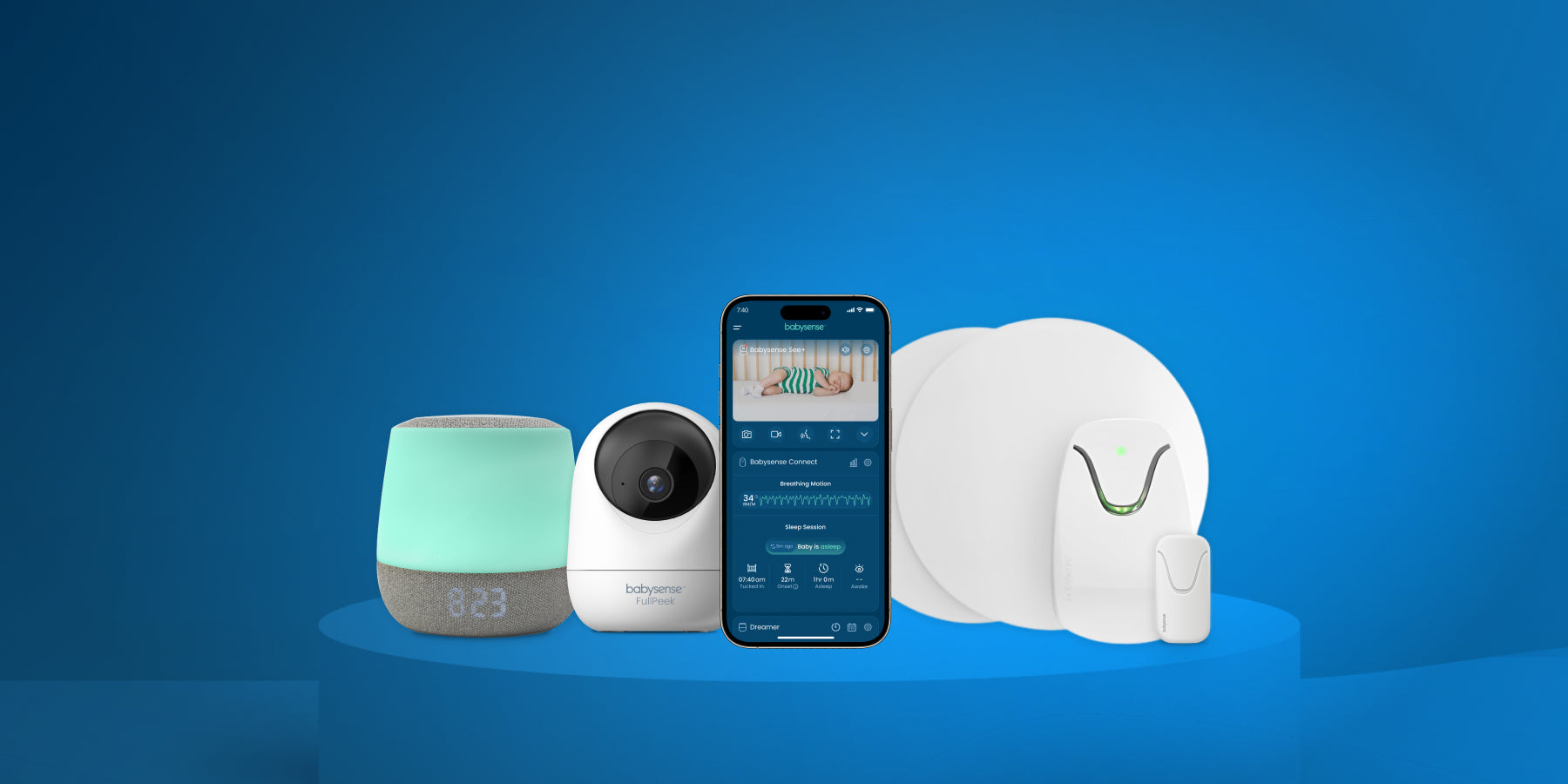Children need enough sleep to maintain proper physical and mental health. Unfortunately, it's not always easy to put a baby to sleep, as the American Academy Of Pediatrics estimates that 25 to 50% of children experience sleep issues.
As a new parent, it's always a pleasure to spend time bonding with your child. However, sleep is as essential as well, and that's why you should allow your child to rest.
But what do you do when your baby has a poor sleeping pattern? The situation can be problematic, but thankfully, there are multiple solutions to putting your baby to sleep. One solution is the use of music.
Music is therapeutic, and it's been used for years as lullabies to help children effectively. This guide looks at the role of music in assisting children in sleeping, the benefits, the drawbacks, and much more.
Read on.
How Much Sleep Do Children Need?
It's essential to know how much sleep your baby needs to address the sleeping issues effectively. Here are a few guidelines on children rest by age:
- Newborns sleep an average of 18 hours with a few feeding breaks in between
- Babies aged one to five months can sleep for five hours continuously
- Babies aged three to nine months can sleep for nine hours per day, with multiple naps during the day
-
Babies aged six to twelve months can sleep a total of 24 hours per day, in addition to numerous naps during the day
The sleeping habits for babies may vary, but every child should sleep well unless there's an issue. The main reasons why some babies experience sleeping problems include sickness, change of environment, allergy, and hyperactivity.

What's The Connection Between Music and a Child's Sleep?
The brain converts sound from the ears into electrical signals. As the child's brain interprets the signals, it sends multiple effects to the body, allowing the baby to sleep.
One of these effects is the regulation of a stress hormone known as cortisol. Music triggers the brain to lower cortisol in the body.
So if your baby is stressed or nervous, good music allows the baby to feel relaxed and sleep well. Also, music frees the autonomous nervous system, which consists of the digestive system, lungs, and heart.
When the nervous system calms down, the breathing rate reduces to help the child sleep well.
What Are The Benefits Of Playing Music To Children Before Sleep?
Children are different. Some cherish quiet time before bed, but others enjoy singing and music. Here are the main benefits of playing music to your child before sleep:
Music Creates A Relaxed Environment
Most newborns tend to be overwhelmed by a new environment when you take them home from the hospital. During that time, the child gets overloaded by changes in the new space, considering they are still adapting.
That change of space often causes anxiety in many children, making them cry or have sleepless nights.
Soft music helps the child to relax. When played every day or whenever going to bed, soothing music can help create a routine for your child to help them develop a regular sleeping pattern.
Music Helps To Relieve Pain
Music is therapeutic. It can help to relieve pain in children, as mentioned in this experiment. According to the study, ailing children who listen to soft music (lullabies) experience lower heart rates and have fewer pain complaints.
This, among other studies, shows that music has a substantial impact on pain management.
Music alleviates the child's focus from the pain to the rhythms. This helps them to sleep well. If pain is the primary reason behind your child's poor sleep, try lullabies to see if the child will show a positive response.
Music Has Health Benefits
Music brings a positive psychological effect to a child. When listening to the rhythms, both the mind's activities and heartbeat slow down. That's why it's advisable to use soft songs as lullabies, to relax the child's mind, slow down the heartbeat and eventually make the child relaxed and sleepy.
Music Improves The Quality Of Sleep
The quality of sleep depends on many things, among them being the background. If you live in a noisy environment with many people, moving cars, and so on, the child will always hear multiple disruptive sounds that affect their sleep quality.
Good lullabies unify the background by canceling the disruptive background noises and allowing the child only to listen to the song's rhythm. One study found that children who listen to music before sleeping experience better sleep quality, while another study concluded that music makes children relaxed to get better and longer sleep.
Music Strengthens The Bond Between A Child And The Parent
Yes, you can improve the connection between you and your child through music. This is particularly true when you don't expose the child to recorded music, but rather, you sing for them.
The child gets used to your voice, meaning that they can always stay calm whenever you are around, or they hear your voice. Besides, a child feels loved when a parent sings for them, strengthening the bond between them.

How Can You Use Music To Help Your Baby Sleep?
Here are practical ways on how you can help your baby sleep with music:
Play Music during Sleep Time
Children are fast to learn routine patterns. If you turn on specific music when it's time to sleep (mainly at the end of the day), the baby will get used to it and easily sleep.
Lullabies are the best (and one of the most convenient ways to play these is through the built-in lullaby feature of our video baby monitors), but you can also choose a playlist for the most soothing songs, which are also your favorite.
Note: Too much sound may irritate the baby instead of soothing them to sleep. Keep the device's sound low to ensure that you don't disturb the child instead of helping them sleep.
Sing To Your Child
Don't have a smartphone, radio, or a device to play the song? Don't worry. You can sing to your child. Remember that the baby won't critique your voice but will instead be happy for the attention.
There are no limits to the type of songs you can sing for your child, provided that they make the child comfortable and sleepy. Just ensure that you don't distract other people in the house.
Play Music Instruments
Music isn't all about the lyrics and performance. When dealing with a child, you can use your guitar, piano, and any other musical instrument near you. The key is to ensure that the sound is low yet soothing enough to help your child relax and sleep.
What Are The Drawbacks Of Using Music To Help Babies Sleep?
Good music can help your child get better sleep, but not always. Here are few drawbacks of using music therapy to get your child to bed:
- Not all children respond well: Always watch the reaction of your child. If the child feels irritated, find other alternatives to help them sleep.
- Music can be addictive and make the child dependent on it: This means that the child may have sleeping issues when you don't sing to them before sleep.
- Some songs may exceed the sound limit: Too much sound is unhealthy for infants and young children. If the child must listen to music before sleeping, then ensure that the sound is minimal.
A Few Tips to Remember When Using Music Therapy to Help Baby Sleep
Want to start using music to put your baby to sleep? Here are few things to keep in mind:
- Slow beats are the most effective.
- Be consistent with the songs/instruments to create a pattern.
- Do not ignore the sleeping environment! The beddings should be clean, and the surroundings should be conducive.
- Don't put earbuds on the child to avoid damaging the child's ear canal
- Be patient: You may not see an immediate positive response to your child's sleeping patterns. Also, children don't show the same responses. Be patient with your child's reaction but don't overdo it.
- Pay attention to your child's emotion: Sometimes, the baby may not be in the mood to listen to the lullabies.
- Carry it with you: Thanks to technology, you can now carry your lullabies, recordings, and songs on your phone so that your child can listen when traveling.
- Limit it: 30 minutes of lullaby are enough. As earlier mentioned, excessive music may not be suitable for your baby's ears.
Is There A Specific Music Preference For Children?
No, you can always choose the song of your preference. Infants and small babies don't have music preference, as they only enjoy what they find soothing to them. So, take your time to create a playlist of your favorite songs.
Note the exact songs that your child enjoys the most so that you can play them often.
However, you may have to stay away from rap and head-banging music. Children prefer simple slow songs which are less harsh.
Music Therapy: Help Your Baby Sleep Today
Newborns have a lot to learn from their parents, and sleeping is one of those things. While some children may have smooth sleeping patterns, some may need your help, and this means that you incorporate lullabies and other practices to put them to bed.
If the music seems like a good idea, follow our guide to give your child the best sleep with music therapy. But if it doesn't work, then don't hesitate to find other ways of helping your little one sleep.





